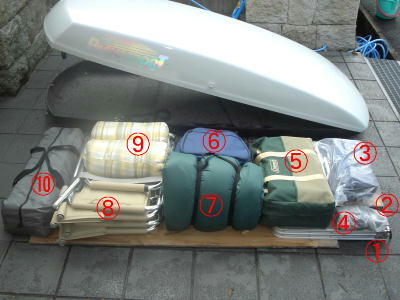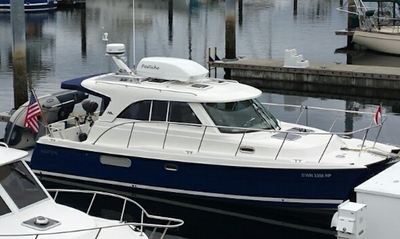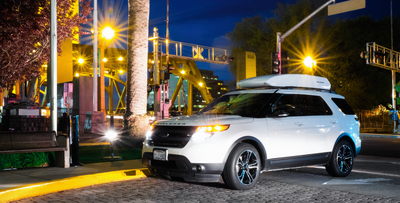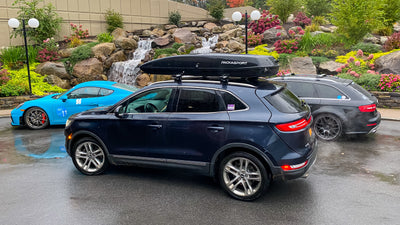How to Choose the Best Daypack
Are you looking to purchase a high-quality and reliable daypack for any outdoor or hiking trips you have planned? Choosing a suitable daypack can mean the difference between having a comfortable, successful trip and fumbling around with an ill-fitting bag that's too small. In this blog post, we will be exploring different aspects of choosing the best daypack for your needs so that you can make sure your next adventure is enjoyable and stress-free. From understanding different materials to sizes, there are many ways to ensure you get the most out of your investment in a new pack. Let's dive in!
What is a Daypack?
A daypack is a convenient and compact backpack designed for daily use. It is a smaller variation of its larger cousin, the backpack. Daypacks are primarily used for outdoor activities such as hiking, cycling, or running errands. They are well-suited for these occasions since they provide sufficient storage capacities without weighing one down excessively.
A typical daypack comprises a single main compartment, which is spacious enough to fit most essential items. Additionally, most daypacks come equipped with various pockets and compartments that are ideal for organizing small essentials such as wallets, keys, and mobile phones. Daypacks are typically crafted from sturdy materials, including nylon and polyester. This makes them durable and lightweight, ensuring they can withstand heavy usage while being comfortable on the shoulders.
Daypacks come in various sizes and styles and have different features, like padded straps, ventilated back panels, and hydration compatibility (water bottle pockets). Some daypacks are waterproof, making them ideal for wet conditions. Others have reflective features that provide added safety during low-light conditions.
A high-quality daypack is an ideal choice for everyday outdoor activities or running errands, thanks to its lightweight and compact design. When selecting a daypack, consider the above factors to ensure you get one that meets your needs appropriately.
Why You Should Travel with a Daypack?
When embarking on a trip, whether it's a long or short haul, it's crucial to have a reliable and practical carrier for your essentials. You can stock large items in a car rooftop carrier, but a daypack works best for small items. A daypack is a small backpack designed to carry your belongings for a day's excursion or trip. Here are some reasons why you should travel with a daypack.
First and foremost, daypacks are versatile and convenient. They can be used for hiking, going to the beach, attending a music festival, or visiting a city. The numerous pockets and compartments allow you to efficiently organize your items, making them easily accessible, so you don't have to dig through your suitcase whenever you need a particular item.
Daypacks are also lightweight and compact, unlike larger backpacks or suitcases, which can be cumbersome. They provide sufficient storage capacities without weighing one down excessively, which is fantastic when navigating busy streets or exploring the wilderness. They're also perfect for carry-on luggage since many airlines have strict carry-on rules, and daypacks fit easily under airplane seats.
Moreover, daypacks offer a level of security that other bags do not. They can be worn securely on your back, providing more control and reducing the likelihood of leaving them behind. The compartments are also built with sturdy materials, ensuring your belongings are safe and secure.
Daypacks are the perfect travel companion for convenience, versatility, and security. They are lightweight, compact, and versatile, perfect for day trips, hikes, or city breaks. With multiple compartments, you can organize your essentials and access them quickly. Daypacks offer more security than other bags, making them perfect for travelers who appreciate peace of mind.
Things to Consider While Choosing a Daypack:
Daypacks can be used for a range of activities. To ensure your journey is memorable, you should invest in a daypack with the following features:
Shoulder Straps Comfort
When choosing a daypack, comfort should be a top priority. The last thing you want is to feel uncomfortable during your hike or outdoor adventure, which can significantly impact your overall experience. Look for a daypack with padded shoulder straps and a breathable back panel to reduce any discomfort caused by heavier loads. Look for the material used in the shoulder strap.
Consider the fit of the pack as well. Most daypacks come in different sizes or have adjustable straps, so choose one that fits your torso length. This will prevent any rubbing or chafing caused by an ill-fitting pack.
Finally, take the opportunity to try on the backpacking pack before purchasing it. Walk around the store with it on and see how it feels. This will help you determine whether the pack is comfortable for your needs.
Capacity
The capacity of a daypack is another crucial factor to consider. Ideally, you want a pack that can hold all of your gear and essentials without being too heavy or bulky. Consider the length of your trip and the type of items you plan on carrying; a larger pack may be necessary for longer trips or if you need to take bulky items like a sleeping bag.
It's important to remember that while capacity is important, it's also crucial to not overload your pack. This can lead to discomfort and even injury. Look for a daypack with multiple compartments to organize and access your gear more efficiently.
Consider the weight of the daypack itself. A heavy pack can be uncomfortable and make your adventure a lot more complicated than it needs to be. Choose a daypack made of lightweight materials, such as nylon or polyester, to reduce unnecessary weight.
Material
When choosing a daypack, the material is one of the most critical factors. Opting for a breathable material will help you stay comfortable and dry, even during the hottest and most strenuous activities. Breathable fabrics such as mesh or lightweight nylon allow air circulation and ventilation, keeping you cool and reducing sweat buildup.
Another critical consideration when it comes to daypack material is water-repellent. This is especially important if you plan on using your daypack for outdoor activities such as hiking or camping. Look for materials such as rip-stop nylon that are coated with water-resistant finishes to help keep your gear dry.
Destination and Activities- Day Packs for Hiking Or City Tour
When selecting a daypack, you must consider your destination and the activities you plan to undertake. The nature of your activities will influence the size and features of your pack. For instance, if you are going hiking, you will need a lightweight, comfortable bag with good ventilation for your back, enough to carry lighter loads.
If your destination is crowded, you need a backpack with anti-theft features like slash-proof material and hidden zippered pockets.
Consider your intended use and select a bag that fits your needs. Whether going to school, work, or hiking through the wilderness, choose a daypack that will help you keep all your essentials organized and within easy reach.
What are Different Types of Daypacks?
Daypacks come in various sizes and designs, offering different purposes, and are made from various materials.
Firstly, small daypacks are incredibly lightweight and perfect for carrying only the essentials such as wallets, phones, and water bottles. They are commonly used as school backpacks and are ideal for short hikes. Medium daypacks are a bit larger, able to carry more gear for a day trip. They have multiple compartments and pockets to store everything you need, making them perfect for a day hike or a picnic.
Large daypacks support more serious activities such as trekking, camping, and longer-day hikes.
Daypacks can be made from materials such as nylon, polyester, canvas, or leather. Nylon daypacks are incredibly durable and water-resistant, making them popular on long hikes or trips. When choosing a suitable daypack, it is essential to consider the size, purpose, and material to fit your unique needs. With the right backpack and quality cargo carrier accessories, you can make your trip memorable.
Conclusion
Choosing a suitable daypack is a personal choice and often based on preference. You should consider which characteristics are important to you when it comes time to make your selection. Color, shape, size, weight, capacity, organizational pockets, and straps - all of these factors can play a part in finding the perfect model for your specific needs. A quality daypack that fits well and is comfortable will help ensure your outdoor adventures are safe and enjoyable. Whichever model you ultimately choose, the most crucial step is to make sure it's the one that suits you best!








